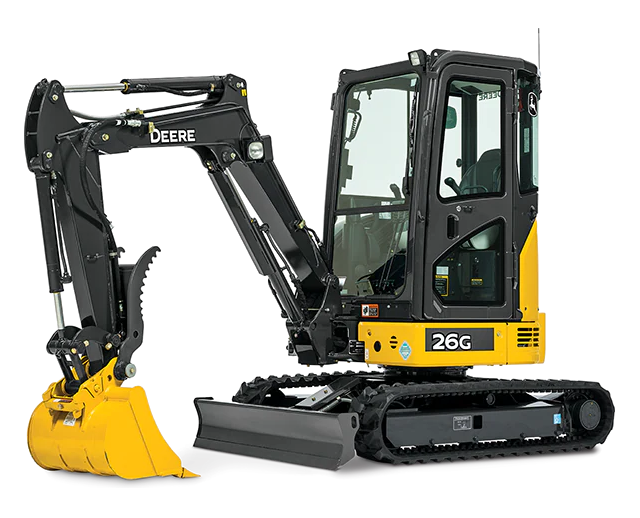Optimize Your Budget Plan by Understanding the Prices Connected With Building Equipment Services
Comprehending the full extent of expenses related to construction tools leasings is crucial for optimizing your budget plan. While the initial rental cost may appear simple, numerous added costs-- such as transport, fuel additional charges, and maintenance-- can quickly gather, impacting your economic planning. Being conscious of various charges and the intricacies of rental agreements can help prevent unforeseen financial problems. What techniques can be used to effectively handle these prices and guarantee an extra efficient rental experience?
Introduction of Rental Costs
When taking into consideration building tools leasings, understanding the connected costs is vital for effective budgeting and task planning. Rental expenses can differ substantially based on numerous factors, consisting of tools type, period of rental, and place. The initial rental charge often shows the tools's market demand and its connected functional capabilities, affecting the total expense.
Along with the base rental price, ancillary expenses might arise, such as transport costs, fuel surcharges, and upkeep costs. It is vital to make up these added expenses to precisely analyze the total cost of leasing tools. The rental duration can influence pricing; longer rentals may qualify for reduced prices, while temporary services could sustain greater day-to-day charges.

Breakdown of Rental Prices
A thorough understanding of rental prices is crucial for service providers and task supervisors aiming to enhance their budgets. Rental prices for building and construction tools normally include several components, consisting of base prices, time-based charges, and usage costs.
Base rates are the core charges connected with the service of the devices, typically determined by the kind and dimension of the machinery. These prices can vary significantly, affected by aspects such as devices need, schedule, and local market fads. Time-based charges, which may be daily, weekly, or monthly, offer to fit different task timelines and rental periods.
Additionally, rental prices may consist of usage fees, which are relevant when devices is utilized past a specified limit, guaranteeing that the rental firm can represent wear and tear. Seasonal need fluctuations can additionally affect rental prices, with peak construction periods usually regulating higher rates.
Furthermore, recognizing the rental company's plans regarding upkeep and insurance can supply more insight right into the overall expense framework. By analyzing these elements, contractors can make educated choices, ensuring the choice of rental tools aligns with both job needs and budget restrictions.
Added Fees to Consider
Comprehending the complexities of additional costs is essential for specialists to manage their general leasing costs successfully. Past the typical rental prices, numerous auxiliary charges can significantly impact the total price of tools service. These costs commonly consist of shipment and pickup charges, which can vary based upon range and logistics entailed in delivering the devices to and from the task site.
Moreover, some rental companies might enforce fuel surcharges if the equipment is returned with much less gas than when leased. It is also important to be aware of prospective cleansing charges, particularly for specific equipment that calls for detailed upkeep after use.

Extensively examining the rental contract and clearing up these additional charges upfront can aid specialists make sure and avoid unanticipated costs that budget plans stay undamaged throughout the task lifecycle.
Repair And Maintenance Expenses
Regular maintenance and repair work expenditures are commonly overlooked aspects that can significantly affect the overall cost of construction devices rentals. When renting out equipment, it is vital to think about not only the rental costs but likewise the possible expenses related to maintaining the equipment in optimal operating problem.
Numerous rental firms include standard maintenance as component of the rental agreement; nonetheless, extra unforeseen breakdowns or comprehensive repair services can bring about extra expenses. It's vital to evaluate the rental contract thoroughly to comprehend what upkeep solutions are covered and what duties fall on the renter.
Additionally, equipment that is not well-maintained can result in ineffectiveness on duty site, possibly creating delays and increasing job expenses. To minimize these risks, it is recommended to conduct routine assessments and keep open interaction with the rental provider concerning any type of issues that emerge during usage.
Insurance Coverage and Liability Costs
Insurance and liability prices are essential parts that can significantly impact the overall expenditure of construction equipment services (mini excavator rental). These expenses make certain that both the rental company and the client are protected from prospective financial losses developing from accidents, damages, or theft during the rental duration

Furthermore, customers should understand any type of deductibles or exclusions in the insurance coverage, as these can affect possible out-of-pocket expenditures. Understanding the terms of any insurance protection is vital to avoid unforeseen expenses. Ultimately, budgeting for insurance coverage and obligation expenditures can aid ensure a smoother rental experience and shield versus financial dangers connected with building and construction tasks.
Conclusion
In conclusion, a detailed understanding of the costs connected with building tools leasings is crucial for efficient budget administration. Ultimately, educated decision-making relating to devices services contributes to the overall success of construction undertakings.
Rental expenses can differ considerably based on a number of factors, dig this consisting of equipment type, duration of rental, and area (dozer rental). The rental period can influence prices; longer rentals might qualify for affordable rates, while short-term services may sustain higher day-to-day fees
By conducting detailed research study and involving with reputable rental business, contractors can properly navigate the intricacies of rental pricing, eventually optimizing their monetary sources.
Beyond the common rental rates, different additional fees can significantly affect the complete cost of devices service. Rental companies usually provide obligation insurance policy that covers injuries to third celebrations or damages to residential property, while tools damage insurance coverage can cover the price of fixings concrete batching plant price or substitute if the rented devices is harmed.